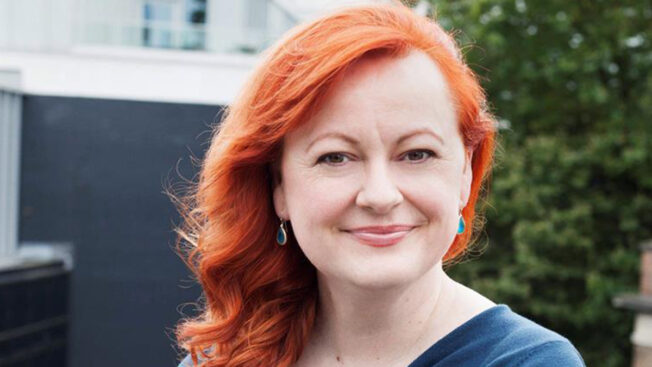Don't miss ADWEEK House at Cannes, June 16-19. Join us as we celebrate our 45th anniversary and explore the industry's now and next. RSVP.
Growing up in public housing in England, Solitaire Townsend learned what she describes as “a risky lesson” for an impressionable teenager: Creative campaigns can change the world.
“A company threatened to build a nuclear waste dump in my hometown,” recalled the Futerra agency head, who at age 13 joined a campaign to stop the project. “After years of painting witty banners and sending polemical letters, we won: The council rejected the plan.”
That experience turned Townsend into a “seasoned optimist,” she said. And it also introduced her to sustainability—the issue that would define her career.
After earning a master’s degree in sustainable development in the 1990s, Townsend launched a research project to tell the story of sustainability. As that work garnered the interest of clients, an agency—Futerra—was born almost out of necessity.
“Futerra wasn’t a plan,” said Townsend, one of Adweek’s 2023 Sustainability Honorees. “It was a passion, right from the start.”
Futerra is now in its third decade, with offices in London, New York and Mexico City. Townsend described the agency’s role as “pathfinding” for the rest of the creative industry.
Rather than attempting to corner the market for sustainable marketing tools, Futerra has stayed small and nimble. That way, the firm is able to change directions as needed to design a better world and prove that more is possible.
One of the biggest challenges for our industry has always been that we see ourselves in service of creativity. At Futerra, we put creativity in service of sustainability.
Solitaire Townsend, agency head, Futerra
Over the last 22 years, Futerra has paved the way for creative agencies to serve their clients differently, from putting together some of the first corporate sustainability reports and measuring the carbon emissions of events to building resale into fashion and making cat food out of insects.
Rooted in Townsend’s deep knowledge of the science behind sustainability, Futerra uses the latest data from the Intergovernmental Panel on Climate Change to guide its work, focusing on shifting consumer behaviors away from high-emissions industries and helping clients do the same.
Selling the ‘unsellable’
“One of the biggest challenges for our industry has always been that we see ourselves in service of creativity,” Townsend said. “At Futerra, we put creativity in service of sustainability.”
On the TED stage last year, Townsend challenged the PR and ad industry’s commitment to creativity above all else. While it is an industry in service of its clients, creative industries are not neutral when it comes to climate impact, Townsend argued, adding that they have a powerful role to play in promoting—or discouraging—climate action. Her talk has been streamed more than 1.8 million times.
Futerra has worked with world-renowned brands like Google, Formula One, the United Nations, Earthjustice and Mars Petcare, helping them to set sustainable business agendas and shift away from extractive practices—all while telling a story that makes sustainability desirable to consumers.
“Futerra’s job has always been, ‘How would you sell the unsellable?’” Townsend said. “How do we as marketers help to make new business models desirable, possible, livable?”
When Townsend first started working in sustainability, she was told that brands would never be willing to talk about the climate impact of air travel or meat consumption, or, more recently, environmental racism. These were topics that the mainstream marketing community wouldn’t touch, industry veterans explained at the time.
It all turned out to be “complete bollocks,” Townsend said, but those experiences have only fueled her stubborn optimism.
Looking ahead, Townsend plans to keep pushing the envelope of what sustainability-focused advertising can do.
“We’ll continue to do the stuff that you’re not supposed to be able to do in marketing,” she said. “Talk about the topics that you’re not supposed to be able to talk about and find ways to make desirable, creative, compelling content that you’re not supposed to be able to make.”
This story is part of Adweek’s The State of Sustainability digital package, which spotlights climate-focused marketing solutions across the beauty, experiential and media spaces, and examines how an industry that was built to drive consumption is adapting to reduce its impact.










